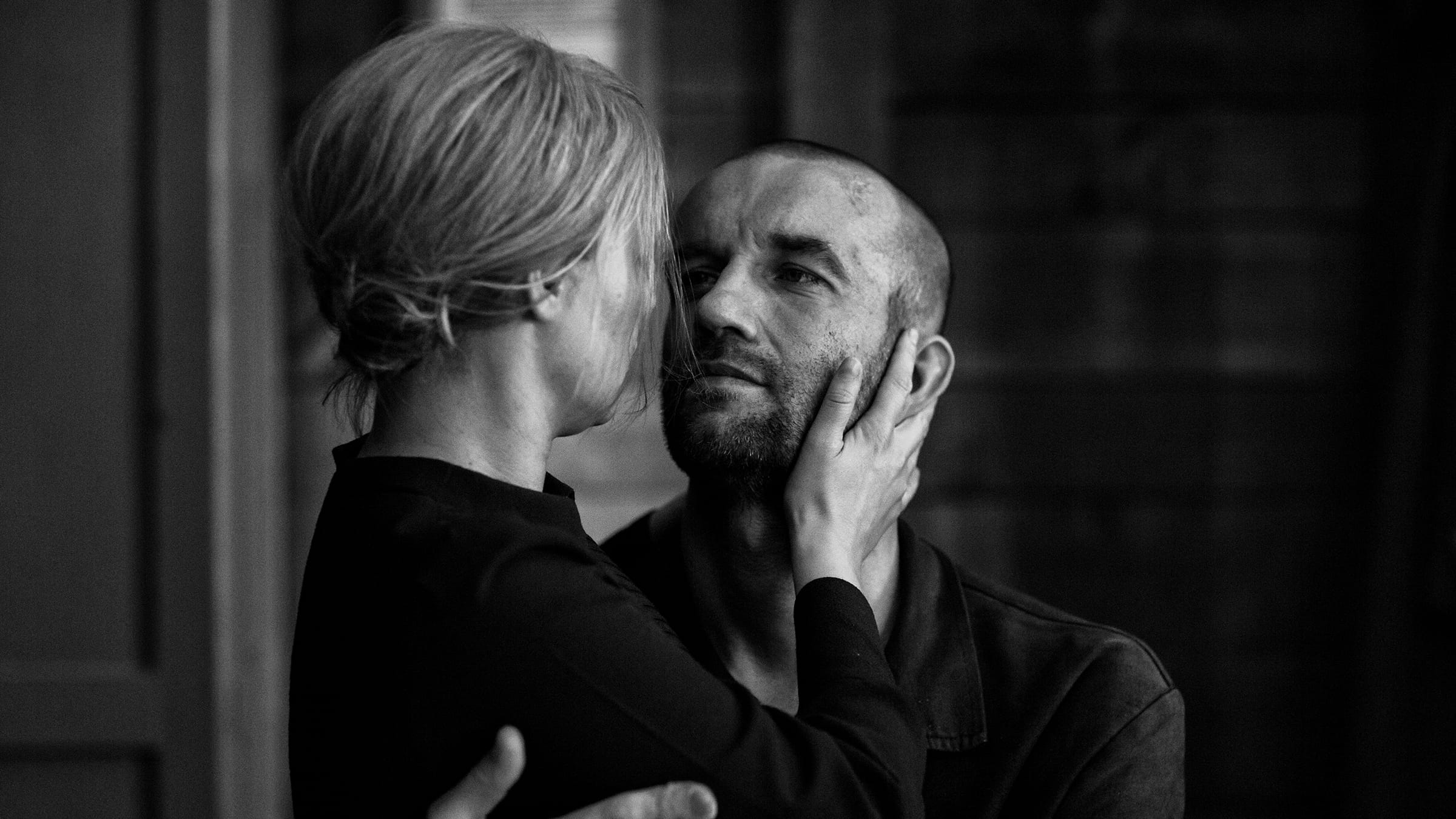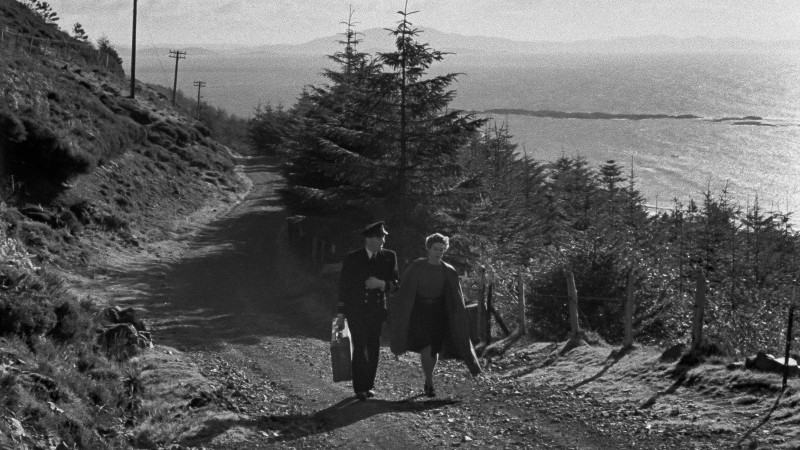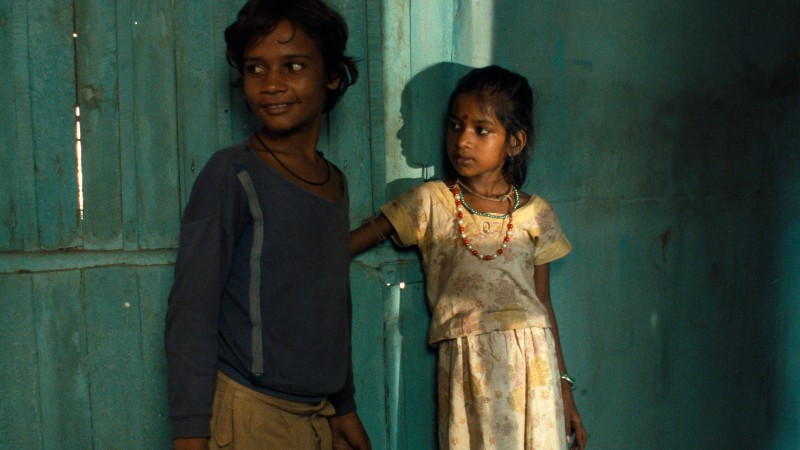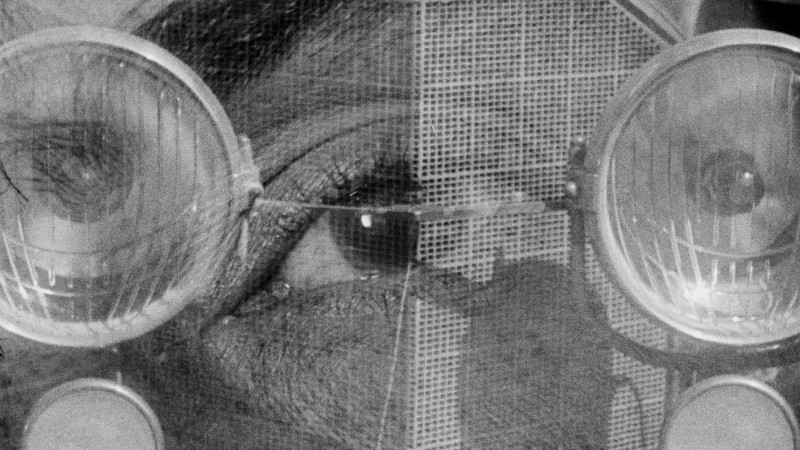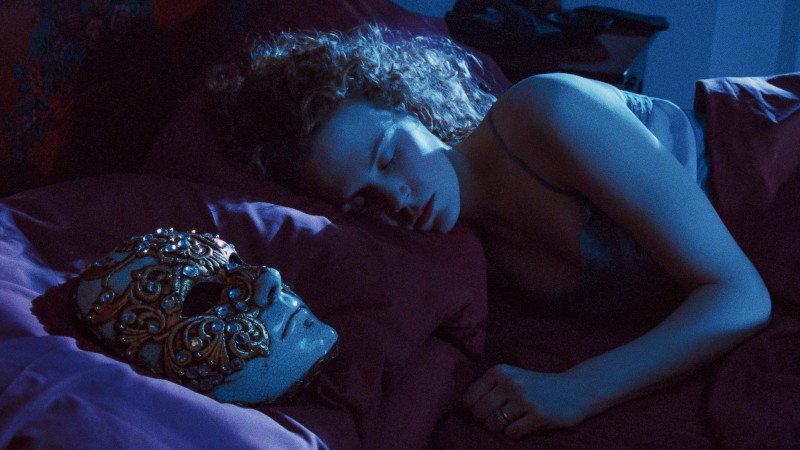RELATED ARTICLE
Cold War: You’re My Only Home

Share
Every love affair requires a border crossing. The person you see across a crowded bar, or meet at a dinner party, or find on a dating app is another country altogether—maybe a nice place to visit, but do you really want to live there? To find out, you must first put a foot outside your own territory. And after that, falling in love means blurring the lines on your personal map. Where does your country leave off and your beloved’s begin? It can be delightful to merge nations and make a home right in the middle. Yet people, like countries, can be stubborn, unmanageable things. When two people lose sight of each other, sometimes they must redraw the borders around them to find what they’ve lost. And sometimes, when someone has hurt you too much, you need to build a wall between you and the other and call it a day, becoming a nation of one once again.
The Polish filmmaker Paweł Pawlikowski’s Cold War is a story of lovers crossing borders of all sorts, including literal national ones. It’s a story of two people finding each other, almost miraculously, and falling into the deepest kind of love, smudging the line between their individual selves—but there are also long separations and passionate rekindlings, abandonment and rapprochement. This century is admittedly still young, but Cold War is one of its most romantic films, and it seems likely that, eighty years from now, people will still be watching it, thrilling to it, crying over it. It is set—in Paris and Berlin, and in Poland and Yugoslavia—between the late forties and the midsixties, yet in another sense the movie is a time and country unto itself, with a total population of two.
Wiktor, played by Tomasz Kot, is a musician traveling the Eastern European countryside, circa 1949, with Irena (Agata Kulesza), an ethnomusicologist who may or may not be a romantic partner as well. The duo are hunting for sounds—not new sounds but old ones: they’re in charge of putting together a troupe of performers who will help preserve rural musical traditions in danger of being lost forever. They travel from village to village, collecting timeworn songs that still somehow sound dazzlingly alive. At one point, a young girl with an unseasoned voice as robust as a root vegetable sings a mournful folk ballad: “Dark eyes, you are crying because we cannot be together.” The girl herself has enormous, searching eyes, too old for her face; even so, she is too young for this desolate song, as weathered as antique linen.
But Pawlikowski and his cinematographer, Łukasz Żal, working in lustrous black and white, have already shown us something of the country landscape where singers like this girl live—roads crusted over with icy snow, chickens scrabbling about in hopes of locating a patch of grass—and while this geography is astonishingly beautiful, it also presents clear challenges. There’s no doubt that the girl with the unpolished but muscular voice will grow into the sadness of this song: it is waiting for her with open arms.
Our story will leave this particular girl behind, but not the song. We’ll hear it again, several times: At one point it will be sung by a chorus of women wearing traditional country finery, in a dignified yet oddly fiery theatrical performance. Later we’ll hear it in a dusky Paris jazz club, this time sung by a sophisticated city woman with a blond pageboy haircut; she was formerly a member of that chorus but has since made the almost unbearable sadness of the song her own. That woman is Zula—played, superbly, by Joanna Kulig—but when we meet her, she is as far from that jazz club as you can imagine. As Wiktor and Irena search the countryside for folk-music specimens—they’re accompanied by an officious manager type, Kaczmarek (Borys Szyc), who will keep reappearing in the story like a hardy mushroom—they spot a radiant, ambitious young woman amid a bevy of nervous hopefuls. Wrapped in a sturdy wool coat, her pale corn-silk hair twisted into a single braid with winsome schoolgirl bangs, she sings her sweet, simple song, in a duet she has convinced another singer to spontaneously pull together with her. Her features are disarmingly round and pliant, but her eyes are alert; she looks wholly innocent at first glance and nakedly calculating at second. During the duo’s performance, Irena takes notes, sternly, and promptly dismisses them. But Wiktor’s eyes never leave Zula’s face.
He calls her back: “Excuse me, miss with the fringe. What else have you got?” “To sing?” she responds, knowing full well what he means but already spinning the first threads in her web of sexual flirtation. Wiktor is a goner.
“Once you know the real story that inspired Cold War, it’s easy to understand why the filmmaker idealizes these two restless, complicated souls, seducing us into loving them as he does.”

“Pawlikowski is so alive to the lovers’ faces that it seems he has planned the whole movie around them.”
